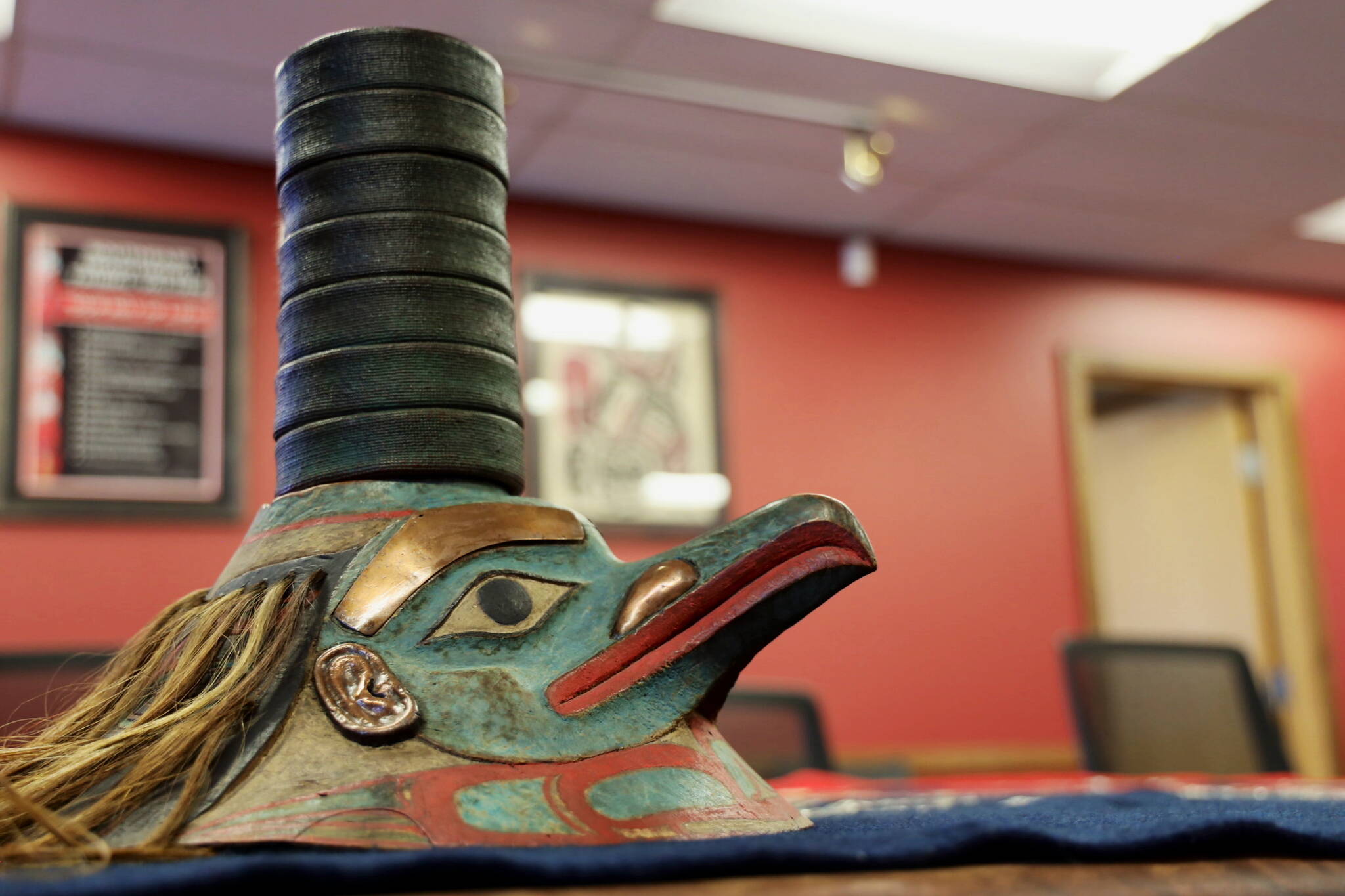Significant funding toward the repatriation of Alaska Native items and artifacts is on its way to the Central Council of the Tlingit and Haida Indian Tribes of Alaska after it was announced Monday the tribe is slated to receive $143,000 in funding toward that mission.
“It’s very significant,” said Richard Chalyee Éesh Peterson, the tribe’s president. “I’ve been the president for nine years and probably one of the most meaningful aspects of the job is when these artifacts are returned.”
The grants are part of $3.4 million in funding announced by the National Park Service that will go to 16 Indigenous tribes and 28 museums across the nation under the Native American Graves Protection and Repatriation Act. The act requires federal agencies and institutions like museums to return Indigenous items to its owners. This year marks the largest amount of funding being provided under the act passed by Congress in 1990.
Tlingit and Haida was the recipient of three repatriation grants totaling about $44,000, along with one consultation/documentation grant totaling about $99,100. The Qawalangin Tribe of Unalaska, Alutiiq Museum and Archaeological Repository, and the University of Alaska Fairbanks also received funding for projects in Alaska.
Once allocated the grants will be administered by Tlingit and Haida’s Native Lands and Resources Division, which plans to consult and do research with museums at the University of California Berkeley and the University of Pennsylvania to identify objects culturally affiliated with the tribe and clans, and return the objects to their appropriate homes.
According to Desiree Duncan, the Native Lands and Resources director for Tlingit and Haida, the tribe has successfully repatriated more than 130 objects since 1993 following the establishment of its Cultural Resources program, which for more than 30 years has worked to return and protect tribal objects of cultural patrimony, sacred objects, funerary objects and human remains.
Duncan said the funding will aid the tribe’s mission to identify more objects and bring them back to their home in the future. Currently, the tribe is preparing to bring a dagger and robe home to clans located in Wrangell in the coming weeks.
“I am appreciative of the funding and I think it’s a reflection of the hard work that our staff does, and our cultural specialists working with our elders and our clan leaders,” Peterson said.
• Contact reporter Clarise Larson at clarise.larson@juneauempire.com or (651)-528-1807.

